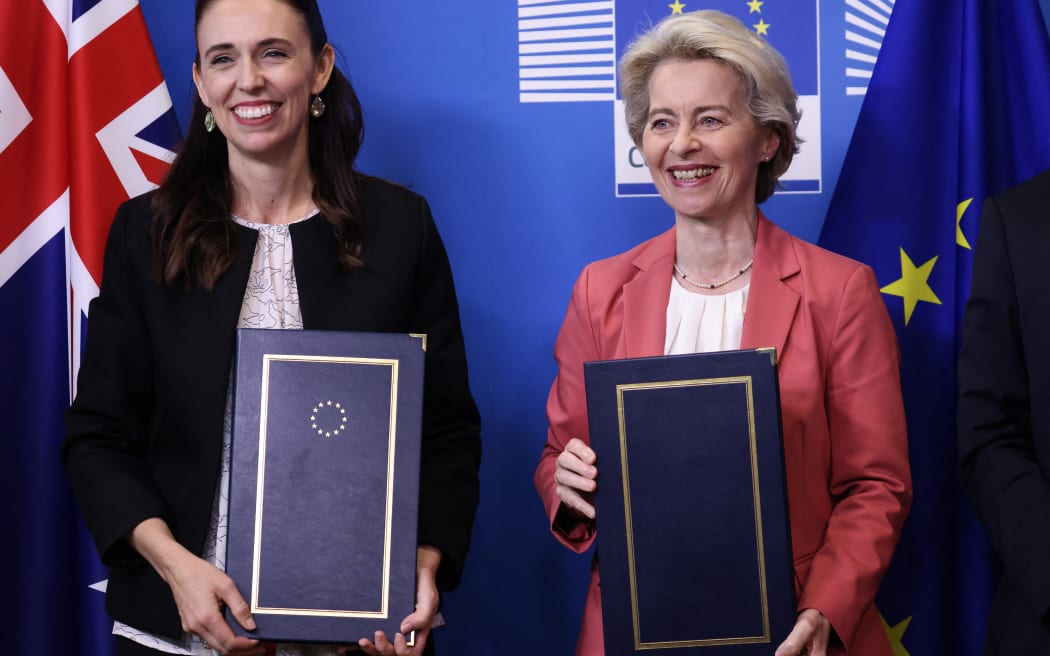EU’s main farming association Copa-Cogeca is unhappy about the free trade deal signed with New Zealand last week.
 Prime Minister Jacinda Ardern and European Commission President Ursula von der Leyen at EU headquarters in Brussels on 30 June 2022. Photo: AFP
Prime Minister Jacinda Ardern and European Commission President Ursula von der Leyen at EU headquarters in Brussels on 30 June 2022. Photo: AFP
The deal means New Zealand can send a further 38,000 tonnes of sheep meat, 10,000 tonnes of beef, 15,000 tonnes more of butter and extra 25,000 tonnes of cheese to the EU.
In a statement, Copa-Cogeca said its dairy, sheep and beef sectors were the “sacrificed lambs” of the deal.
The farmers’ group said it recognised the high consumer protection standards in New Zealand, and the effort made by the European Commission to protect geographical indicators and EU production standards in the deal, but painful compromises had been made on sensitive sectors.
“As far as agriculture is concerned, important concessions have been made in already sensitive sectors in Europe. This will increase our structural negative trade balance which was roughly €750 million in 2021 on agriculture, in a period where we are struggling to continue investing in sustainability.
“Our products, such as wine and pig meat, already perform in the New Zealand market, leaving little margin to balance our trade for the benefit of the EU agricultural sector.”
It said New Zealand exporters already had access to market for the meat and dairy products, and additional access would substantially increase market pressure.
“This causes major concern about the cumulative impact of concessions granted by the EU to New Zealand that may come on top of already agreed tariff rate quotas in other bilateral and multilateral negotiations for beef and sheep and therefore should be taken into account for future trade agreements.”
While Copa-Cogeca believes the FTA has gone too far, New Zealand’s red meat and dairy sectors say it does not go far enough.
